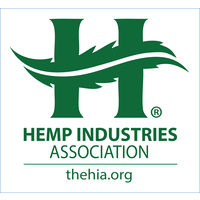The Hemp Industries Association (HIA) is a non-profit trade organization for hemp companies based in the United States and Canada. The membership-based Association was founded in 1994 in Scottsdale, Arizona by a  group of hemp business owners and activists with the cannabis activist and author Chris Conrad as a leading figure who also served as the organization’s first president.
group of hemp business owners and activists with the cannabis activist and author Chris Conrad as a leading figure who also served as the organization’s first president.
Since 1994, the HIA represents hemp companies, farmers, researchers and supporters of the hemp production in the United States, and recognizes the following collaborative partners within the USA: U.S. Hemp Roundtable, American Herbal Products Association, and U.S. Hemp Authority™, Drug Policy Alliance and FAAAT.
Apart from the organization’s collaborations in the States, HIA also recognizes international hemp association partners like the British Hemp Association, the Canadian Hemp Trade Alliance, the European Industrial Hemp Association and the Indian Industrial Hemp Association.
The HIA aims to increase hemp economy by bringing out hemp products and especially educating the market and the public for the beneficial effects they have on people’s everyday life and the planet altogether.
The nearly 1,000 hemp businesses constituting the members of the Association so far, support ethical business and marketing methods by promoting sustainable and organic agriculture and making use of environmentally friendly technology. Their mission is to ensure the continuity of expertise between hemp agriculturists, processors, manufacturers, distributors, and retailers to maintain as well the high quality of the hemp products and encourage the research and development of new hemp products.
Furthermore, the organization strives to achieve fair and equal treatment of industrial hemp, as hemp is an ethical and sustainable choice for health care products and cosmetics, nutrition products, textiles, and building materials too. The HIA is trying to promote all the above alternative solutions to industrial materials, as ethically the members of the Association strongly believe that using hemp materials will have a significant impact on our planet’s relief.

Hemp seeds are one of the most nutritious natural foods providing exceptional ingredients for human health as they contain high levels of vitamins A, C and E, and beta-carotene. They are rich in protein, carbohydrates, minerals, and fiber. A 2014 study from Spain’s University of Seville found that hemp seed has an ideal ratio of omega-6 to omega-3 fatty acids, along with some compounds which decrease high blood pressure.
As the first plant fiber, hemp has served humankind for thousands of years. From hemp materials discovered in tombs dating back to 8,000 B.C to the industrial hemp fiber used by sailors for their ropes, sailcloths, and apparel, hemp fibers have proven to be the most durable of all natural textile fibers.
Originating from Cannabis Sativa type of plant, hemp fiber is also characterized by its softness and comfort. The naturally porous fiber is water absorbent and resistant to mold and ultraviolet light. As a fabric, hemp provides all the softness of a natural textile but with extreme durability and a versatility that allows its use for numerous products such as apparel, accessories, shoes, furniture, and home furnishings.
Hemp offers excellent alternatives to the standard building materials as it can replace synthetic, petroleum-based and other high embodied energy materials with environmentally-friendly, healthier and less expensive solutions. The parts of the hemp plant currently used for construction materials are the woody inner core to produce hempcrete, the outer fibrous skin (for hemp fiber batt insulation and hemp seed oil for wood finish and deck stain.
On educational purposes, in 2010 the HIA acquired the diaries of the renowned American botanist Lyster Dewey (1865–1944) who devised research on fiber plants at the beginning of the 20th century. The HIA is planning to exhibit the rich scientific archive to the public for the first time in many years.
On October 9, 2001, the Drug Enforcement Administration (DEA) posted an interpretive rule on its website stating that all hemp seed products that may contain traces of THC would be considered seizable contraband, thus criminalizing at once all hemp seed products in the US.[4] A period of public debate followed the event until the DEA filed the final proposed rule in the federal register on March 21, 2003. One week later, the HIA joined with the Organic Consumers Association and several companies which used hemp seed in one or more products to file suit against the DEA rule going into effect.
On February 6, 2004, the Ninth Circuit Court of Appeals ruled unanimously for the HIA, declaring that the DEA had no authority under the federal Controlled Substances Act to ban an otherwise legal product because it might have traces of THC.[5] On September 28, 2004, the Supreme Court of the United States declined to hear the appeal, allowing the Ninth Circuit decision to stand.
The settlement between HIA and DEA was finally reached on Friday, May 25, 2018, in the Ninth Circuit Court of Appeals to advocate the legality of manufacturing, sale, and consumption of hemp food products. As the HIA press release on the issue mentions: “This settlement restrains further illegal attempts and actions by the DEA to regulate hemp foods as Schedule I Drugs, and constitutes the third installment in a nearly two-decade long legal saga known as the “Hemp Food Rules Challenge.”
Publication Date: 05/14/2019
[starbox id=3]

